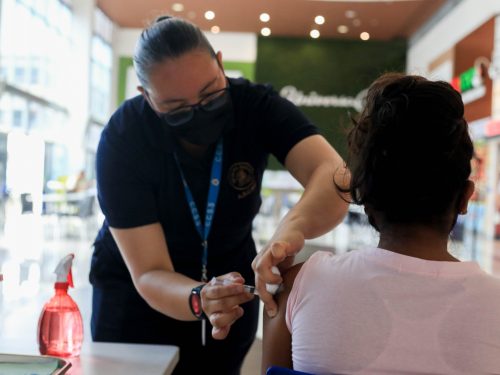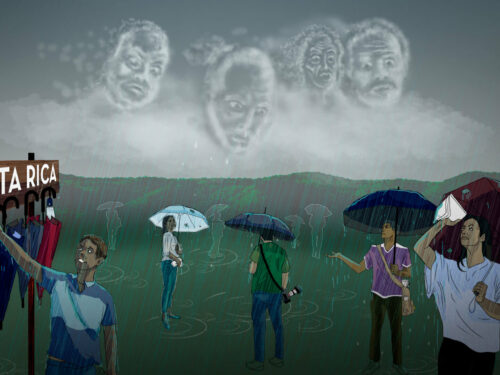
On December 24, at least 50 Costa Ricans received the first vaccines against COVID-19. Costa Rica was the second country in Latin America to administer doses against the virus, after Mexico.
The vaccination process will continue in progress until the immunization of 60% of the population is complete. Does that include foreigners residing in the country? Not completely.
The Ministry of Health affirmed that foreign people residing in the country will be vaccinated against COVID-19 if they meet two requirements: if they are part of the priority vaccination groups and if they have a regular legal immigration status in the country. In other words, Costa Rica won’t vaccinate irregular immigrants, with no exceptions.
The secretary of the National Vaccination and Epidemiology Commission, Roberto Arroba, told The Voice of Guanacaste that the Ministry of Health made the decision after evaluating that those immigrants “don’t have a medical history” in clinics here since they don’t have a regular status in the country and therefore, doctors couldn’t administer medication without that information.
“Regular status allows us to assess the clinical history because then people receive care through the [Social Security] Fund and information can be obtained, such as whether the person has had COVID or not,” Arroba explained.
The Ministry of Health affirmed that people with an active refugee application or with approved refugee status can be part of the immunization campaign against COVID-19
The Ministry will also vaccinate Costa Ricans who don’t have insurance from the Costa Rican Social Security Fund (CCSS). The vice minister of health, Pedro Gonzalez, emphasized that the situation of both groups is different.
Caja has registered a large number of uninsured [people], because the uninsured population consults Emergency services. That gets entered into the databases even if they don’t have insurance. There is a history there,” Gonzalez said.
To get vaccinated without having social security, the patient must go to the nearest Ebais to request the dose on their own. This will be free for both nationals and foreigners.
Another reason for not vaccinating irregular immigrants, according to the vice minister, is that there is an age requirement to be part of the priority groups. The Ministry of Health will only accept a valid Costa Rican legal document to verify the age of patients.
According to an estimate from the Diagnostic of the Migratory Context of Costa Rica, in 2017 alone, the country was home to some 200,000 Nicaraguans with irregular status. The study noted that due to the lack of censuses and analysis of immigrant populations in Costa Rica, the figure was probably even higher.
The leaders think that not vaccinating irregular immigrants doesn’t affect the population immunization plan.
“By vaccinating three million people, we’re covering 60% of the population, at least from what INEC (National Institute of Statistics and Censuses) has registered. By vaccinating that amount of people, we would be ensuring that we have the herd immunity effect; which is to say that, even if a person isn’t vaccinated, having vaccinated people around him, the virus won’t be able to circulate,” stated the secretary of the commission, Roberto Arroba.
Migration and vaccines in other countries
Costa Rica isn’t the only country that will exclude irregular immigrants from its coronavirus vaccination campaigns.
The government of Colombia announced that it won’t include irregular immigrants in the mass vaccination process. “Those who don’t have the accreditation of being Colombian citizens at this time, or who don’t have their immigration status regularized, of course won’t [be vaccinated],” said Colombian President Ivan Duque during a radio interview.
The United States Surgeon General, Jerome Adams, said in an interview with CBS that “it’s not ethically right to deny” the vaccine to undocumented immigrants. In addition, he insisted that information provided to receive the second dose of the vaccine won’t be used to affect the person remaining in the country. However, the governor of Nebraska, Pete Ricketts, affirmed that his state will exclude people without immigration documents from the vaccination program.
The rest of the governments on the continent have not confirmed their position regarding the vaccination of these immigrant groups.







Comments